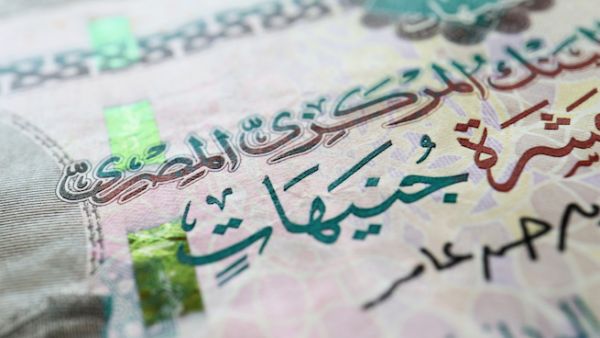Fears are rising in Egypt of a new wave of inflation after Egyptian President Abdel Fattah al-Sisi ordered pay rises for millions of civil servants and pensioners.
Sisi, responding to demands by civil servants and pensioners for higher pay so they can cope with rising commodity prices, ordered the increases March 30.
“The rise is necessary while the prices of all commodities keep shooting up,” said Yumn al-Hamaki, an economics professor at Ain Shams University. “The civil servants and the pensioners are caught in the middle of the adverse effects of the national economic reforms.”
Read More
Egyptians Are Skeptical About Wage Raises
Interest Rates Remain Unchanged in Egypt
Sisi asked the government to increase the pay for around 6 million civil servants and 9 million pensioners by almost 15%. The increases are to go into effect in July, the first month in the new fiscal year. The new pay package will cost approximately $3.4 billion a year.
The president also ordered an additional 100,000 families to receive monthly financial aid within the national Solidarity and Dignity welfare programme. This will add around $57.5 million to spending every year.
Egypt’s civil servants and pensioners were hard hit by economic reforms, which included liberalisation of the exchange rate of the Egyptian pound and moves to eliminate water, electricity and fuel subsidies.
The reforms led to a marked drop in the value of the pound against all foreign currencies. This caused a rise in the prices of commodities, with food prices almost tripling since November 2016 although there has been scant wage growth.
Reports suggest most Egyptian civil servants work other jobs to be able to put food on the table for their families.
The rise will drive greater demand for commodities, which increases the likelihood of a higher inflation rate, economists said.
“The presence of more liquidity will mean more demand,” said MP Bassant Fahmi, who is a member of parliament’s Economic Affairs Committee. “Higher demand will inevitably lead to higher inflation and consequently a rise in commodity prices.”
These fears compound a steady rise in the annual urban consumer price inflation since December when the rate was 12%. The inflation rose to 12.7% in January and was 14.4% in February.
The addition of $3.4 billion in spending may rise forecasts for the budget deficit.
The Egyptian Ministry of Finance said it expects the budget deficit to reach about $34.2 billion in the new fiscal year. It also said civil servants’ salaries would take up 19.1% of spending in the next budget.
The expected rise in the inflation rate could cancel out the intended effects of the pay rise, economists warned. This is something Sisi had acknowledged in his announcement of the salary package when he also asked Egyptians to be careful of what they buy.
“This is an easy matter,” Sisi said. “Do not buy commodities whose prices rise. Traders will have to reduce the prices of the commodities they sell when consumers stop buying them,” he said.
A boycott could work in the case of non-essential commodities, economists said, but this was unlikely to be an effective strategy on essential commodities, such as food.
Some Egyptian economists called for measures to prevent a backlash on commodity prices from the forthcoming pay rise.
Increasing production, including that of food, attracting more foreign industrial and agricultural investments and upping funding for small and medium-sized projects are among measures the government needs to take to keep the lid on commodity prices, economists said.
“These are measures that must be taken to prevent demand from outpacing supply in the market,” Fahmi said. “The civil servants and the pensioners will not feel the effect from the pay rise if proper action is not taken to put demand within limits of supply.”








